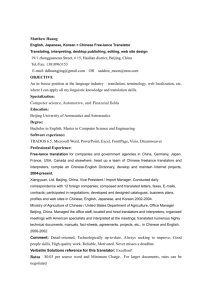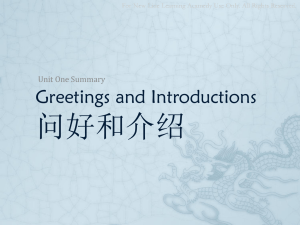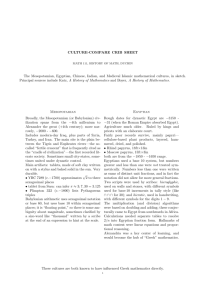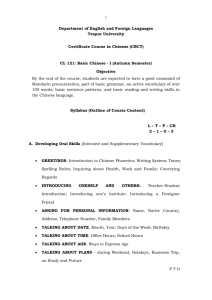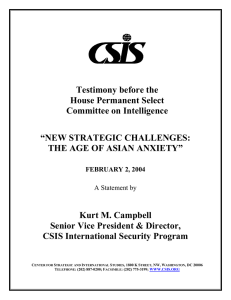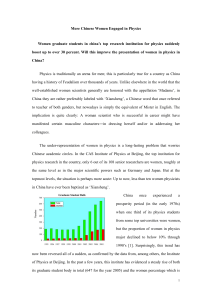19th International Conference on Higher Education (I
advertisement
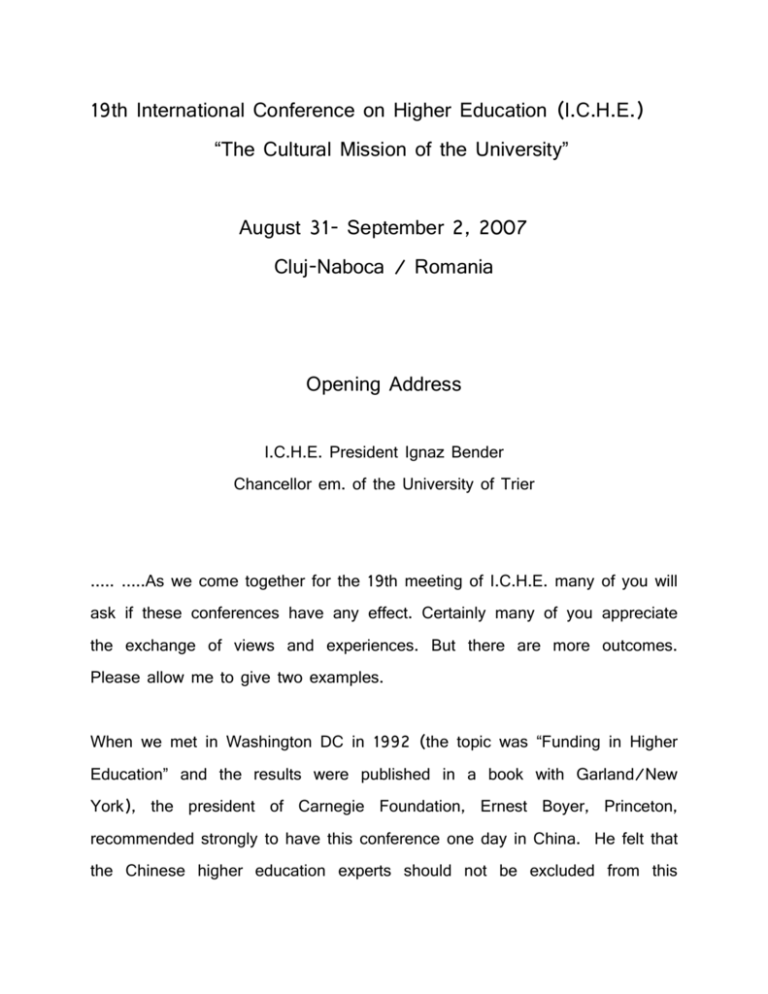
19th International Conference on Higher Education (I.C.H.E.) “The Cultural Mission of the University” August 31- September 2, 2007 Cluj-Naboca / Romania Opening Address I.C.H.E. President Ignaz Bender Chancellor em. of the University of Trier ..... .....As we come together for the 19th meeting of I.C.H.E. many of you will ask if these conferences have any effect. Certainly many of you appreciate the exchange of views and experiences. But there are more outcomes. Please allow me to give two examples. When we met in Washington DC in 1992 (the topic was “Funding in Higher Education” and the results were published in a book with Garland/New York), the president of Carnegie Foundation, Ernest Boyer, Princeton, recommended strongly to have this conference one day in China. He felt that the Chinese higher education experts should not be excluded from this universal higher education dialogue. We agreed and soon received an invitation from a Chinese university (Qingdao). As China started to practice market economy we proposed as topic of the conference “Demand and Supply of Higher Education in a Market Economy”. We realized that never more will a central planning commission decide what goods should be produced but ten thousands of enterprises. And these enterprises need educated top-personalities. We did not want to teach from outside how the authorities should handle this dramatic deficit of higher educated Chinese people but insisted that the Chinese government give to the conference its official view on how to overcome this dilemma. It took several years of dialogue with the Chinese officials. At the end the government accepted and sent the official speaker on higher education of the State Education Commission of the People’s Republic of China. His keynote address surprised all foreign participants. We heard that China intends to educate its students in a creative and innovative spirit based on independent thinking and humanism, that China has not enough universities (one hundred more were needed) to teach students and therefore needs support from abroad. One year later an Education Congress took place in the People’s Congress Hall in Beijing where the State President Jiang Zemin repeated in his speech essential parts of what we had heard on our conference a year earlier. The result was that China opened more and more its frontiers for students to study abroad. Today 650.000 Chinese students frequent foreign universities. Nobody from our side had expected this as a result of our careful and sensible talks with Beijing officials when preparing the Qingdao international conference. A second example: In May this year I was invited by the Organisation of the 57 Islamic Countries (OIC) to contribute to a university seminar on “University Ranking” in Tehran/Iran. As other invited experts from abroad did not come to Tehran I was the only representative from the non-Islamic world. Before leaving the General Director of the Islamic World Academy of Sciences, Moneef R. Zou’bi, informed me as President of I.C.H.E. that since the International Conference on Higher Education in the last years had been frequented by participants from Islamic countries, these participants have essentially been starting a process in the Islamic world to give more attention and financial support to education, higher education and research. What more can we expect? I wish that this conference of 2007 with its topic “The Cultural Mission of the University” will also be successful.

